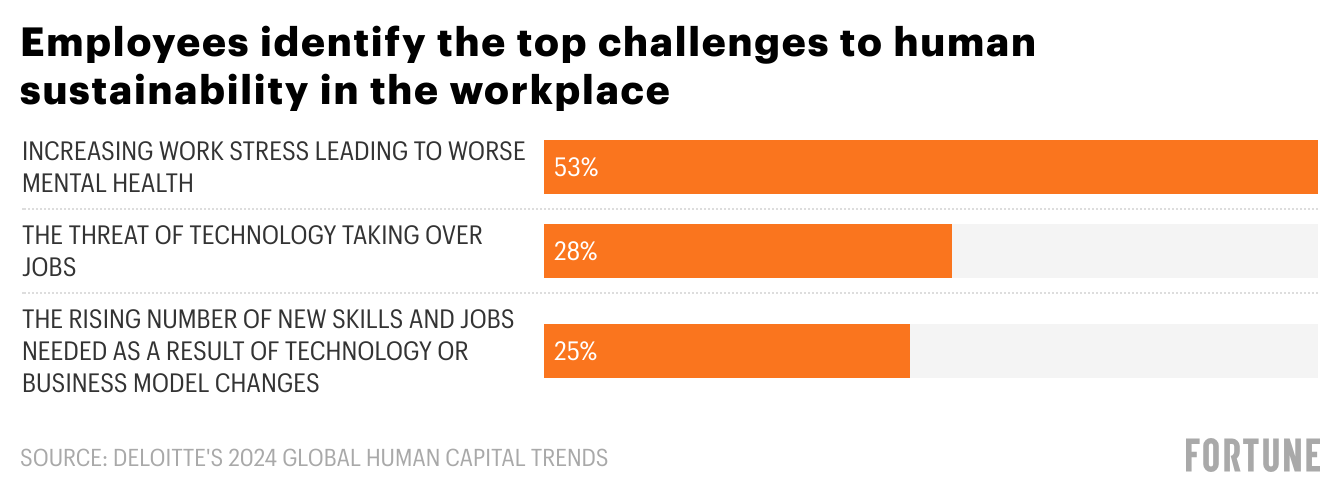Good morning. It’s not easy to quantify a person’s common sense, let alone inject that trait into new models of artificial intelligence. But, some new research may provide key insights on the matter.
University of Pennsylvania professor Duncan Watts and Mark Whiting of the School of Engineering and Applied Science and Wharton School are the authors of a paper that offers a framework for quantifying individual and collective common sense. The researchers build on the idea of common sense as being the “things all sensible people know,” Whiting told me.
They define “commonsensicality” in terms of consensus—essentially the extent to which people have similar opinions about a claim, a collective awareness—and the extent to which people have the right impression about what everyone else thinks about the said claim.
Whiting and Watts introduced this measure as “pq common sense,” defining common sense as the fraction of claims (q) that are shared by a fraction of people (p). For the study, they had 2,046 people rate 4,407 claims in categories ranging from practical truths to philosophical statements in topics such as geography, mathematics, and culture. Survey participants also classified claims based on their viewpoints of fact versus opinion, literal language versus figures of speech, and knowledge versus reasoning.
Empathy wins the day
“We find that plainly worded facts, like claims about physical reality, are the most commonsensical,” Whiting explained. (For example, plants need nutrients in the soil for them to grow.) However, people more aware of others’ emotions exhibited more common sense, and demographics such as age, education, or a person’s political leanings didn’t significantly influence results, he said.
With companies investing more in AI, and exploring the power of genAI, a common definition of common sense for those computers is a good place to start, “but it’s not enough,” he added. “We need to have a way to quantify common sense to ensure that AI tools actually have it, and to see which AI tools have more or less of it.”
Many AI efforts today have treated common sense as “stuff that is obviously true,” Whiting explained. But the challenge with common sense is that it isn’t consistent.
Although the research didn’t specifically address the use of common sense in business, Whiting told me, “We do have a different kind of lesson that may be relevant to leadership and business.”
Any two individuals may share a good portion of beliefs, but as a group gets larger, the portion of shared beliefs becomes much smaller much faster, he noted. “The consequence of this is that it is likely unsafe to assume that people understand things as much as we do,” Whiting said. Put simply? “We all have common sense, but the common sense each of us has is unique,” he added.
Sheryl Estrada
sheryl.estrada@fortune.com
Leaderboard
Shona Wilson was named CFO at enCore Energy Corp. (Nasdaq: EU), a clean energy company and a uranium producer. Wilson most recently served as CFO at kWantix since February 2021. Wilson also previously served as senior director at Platts/S&P Global, finance director of North America at Citigroup, and controller for Lodi Natural Gas Storage.
Mark Chamberlain was named CFO at UserTesting, an SaaS company that provides experience research and insights. Before joining UserTesting, Chamberlain served as CFO of Litera. He has previously held key executive leadership roles in finance and operations at companies such as Ivanti, Novell, and Corda Technologies (now Domo).
Big deal
Deloitte's 2024 Global Human Capital Trends is based on a survey of 14,000 business and human resources leaders across many industries and sectors in 95 countries and worker- and executive-specific surveys. The research points to the importance of prioritizing human sustainability—the degree to which an organization creates value for people as human beings, for example, leaving them with greater health and well-being and stronger skills. This practice can not only drive better human outcomes but better business outcomes as well, according to Deloitte.
A key finding is more than half (53%) of the workers surveyed said they're concerned that increasing work stress will lead to worse mental health. "Many organizations may be stuck in a legacy mindset that centers on extracting value from people rather than working to create value for them," according to the authors of the report.
The report offers best practices organizations can implement as they prioritize human performance.

Going deeper
"AI just took another huge step: Sam Altman debuts OpenAI’s new ‘Sora’ text-to-video tool," an article by Fortune's Christiaan Hetzner, explores OpenAI's new AI tool that, using nothing more than a brief text prompt, creates videos up to 60 seconds long so realistic the average person would struggle to guess they were generated by a computer.
Overheard
"To my fellow Gen Xers: We must use this remaining time to develop realistic retirement plans. We must save as much as possible before it’s too late."
—Tiffani Potesta, chief strategy officer and head of the U.S. client group at Schroders, writes in a new Fortune opinion piece.
This is the web version of CFO Daily, a newsletter on the trends and individuals shaping corporate finance. Sign up for free.













